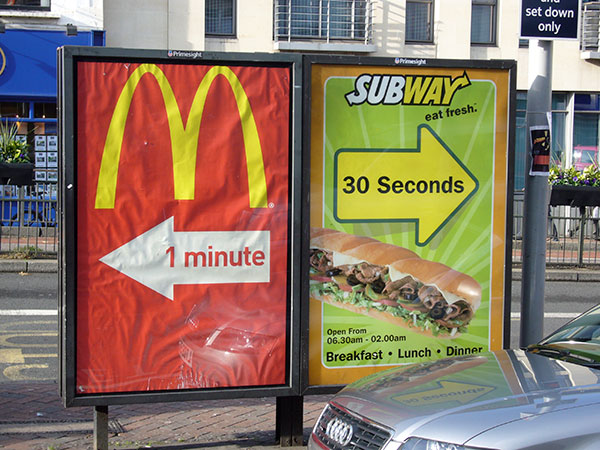Henry Dimbleby’s National Food Strategy, published last month, seeks to address the twin challenges of saving our health, and saving our planet. It delivers an excellent analysis of the problems in food and farming, and how we got here. The logical and well-thought-through recommendations that follow include:
– Taxes on salt and sugar, and large food companies to report on sales and waste.
– Extended access to free school meals and Healthy Start (the NHS food voucher scheme for parents). Plus, educational initiatives and changes to government food procurement rules, to reduce food inequality and our pervasive junk food culture.
– Driving more sustainable land use while ensuring our food supply, through regenerative agriculture, reduced waste, increased yields, and a 30 per cent drop in meat consumption. This would be combined with ongoing payments to farmers to fund the transition, and protection from unfair competition through foreign trade deals.

I agree with 95 per cent of the strategy – but with a sinking feeling that it is unlikely to be implemented, least of all by this government, in these economic circumstances. There is a tacit assumption that food must be cheap, despite acknowledging that were we to include health, environmental and subsidy costs, the real cost of food is double what we pay at the till. I find it hard to understand why cheap food rather than cheap housing (three to four times the spend for low-income households) is repeatedly argued as serving the needs of the poor, and questioning the quality of cheap food is deemed elitist. Is the (elitist) suggestion that the poor don’t care what they eat?
Food represents around eight per cent of household spend in the UK; the US is the only country where it is lower. The 18th and 19th century food riots, and even the Arab Spring, are cited of examples of why good governance requires cheap food; and the political right cry ‘nanny state’ at any suggestion of intervening in the divine free market. It is time to rethink the role of this dogma in shaping policy. Farming contributes less than 0.7 per cent of GDP, but causes around a third of environmental damage; the market has not led us in a sensible direction so far.
We urgently need brave, competent leadership to reform our failing food systems, via taxes, legal and policy interventions, and payment for the environmental benefits advocated in this report. Market-based solutions will not lead us out the mess they got us into.















First of all thank you to all the team for publishing the Wicked Leeks magazine online, and special thanks to its founder.
I was struck by this article juxtaposing the problem of food cost and housing cost. Food and shelter are undeniably the two basic human needs, and it seems in the UK both have been manipulated by the market economy to create a totally unbalanced culture. And one which is on a dangerous collision course with the environment.
I am enjoying Paul Kingsnorth’s series of essays which cover indirectly these subjects and recommend them to your readers. The latest is called “The Green Grace’. I first came across Paul Kingsnorth via his excellent selection of essays by the farmer, philosopher and poet Wendell Berry. Couldn’t recommend them both more.
I agree entirely with the last paragraph….almost. Why put salt and sugar ( and any of the other fillers) in any food…but it happens more in processed foods .But to tax is to deprive those who cannot afford in the first place,
Which brings me to the next point: Estates of social housing, built far from inner city or outer city centres where decent food can be bought, requiring a bus ride ( cost) maybe with kids in tow; one stop stores just round the corner- no fresh food just packaged. Same estates built considerable distance from unskilled/semiskilled work if even available – impossible to get to if you can’t afford a car and there maybe no public transport.
And then, just don’t get me started on the cost of so-called affordable housing…some places good, but in others ( dependent on the status of surrounding areas) shameful.
The removal of the £20 addition to Universal Credit…….
It is class war…
Hi Astralstroll,
You’re right that taxes on food are ultimately regressive and if it resulted in increases in prices it would impact the poorest in society. This was a key concern in the sugary drinks tax in 2018. However the government structured the tax to incentivise re-formulation rather than an outright price increase. This meant that almost all of the soft drinks companies reduced the sugar in the soft drinks to avoid the tax and maintain their product at the same price. At the same time they raise £330 million a year via the tax and this could used to fund beneficial schemes like free school meals and vegetable vouchers (although much of this money remains unaccounted for).
If a sugar and salt tax for wholesale food manufacturing was implemented, it’s likely that most companies would reformulate instead of becoming less competitive, and then they could shout about how their products are healthier. It sounds like a win-win.
In addition the National Food Strategy have projected that a sugar and salt levy would generate £3.4 billion a year and have recommended that money be used to fund schemes designed to increase the consumption of fruit and vegetables.
Food manufacturers use sugar and salt to make their products really tasty and highly addictive (so we buy more). Without this shortcut to flavour, they might have to shift the emphasis onto better quality ingredients to deliver more flavour for us. That would be a turn up for the books!